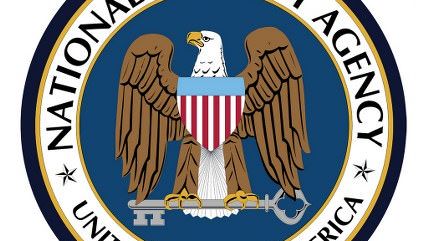Yes, the NSA Can Hoover Up Your Calls and Emails


Pundits with near-theological faith in the veracity of government officials have declared the NSA scandal to be overblown. Over at The Week, editor-at-large Marc Ambinder references a soothing statement from the Office of the Director of National Intelligence and declares, "[T]he upshot of the 2008 FISA amendments acts is that the NSA got expanded access to U.S. telecom switches and hubs in exchange for agreeing not to spy on Americans anywhere in the world without a FISA order. … Doesn't matter where you are: If you're an American, you're protected by FISA." But … That's not really what intelligence officials said. And Ambinder's conclusion doesn't follow.
The statement from the Office of the Director of National Intelligence reads in full:
The statement that a single analyst can eavesdrop on domestic communications without proper legal authorization is incorrect and was not briefed to Congress. Members have been briefed on the implementation of Section 702, that it targets foreigners located overseas for a valid foreign intelligence purpose, and that it cannot be used to target Americans anywhere in the world.
The key word here is "target." If the NSA follows the letter of the law (and it's far from the only agency engaged in snooping — I'm looking at you, FBI), it can't "target" Americans, but it can eavsdrop on their communications if they're participating in a conversation with a foreign "target." As the American Civil Liberties Union puts it:
Building off of statements like the one issued by Director of National Intelligence James Clapper—who said that the NSA can only target "non-U.S. persons located outside the United States"—officials have sought to give the demonstrably false impression that the government needs a warrant to read Americans' emails or listen to their phone calls under the FAA. …
But all of these defenses ignore a simple, basic point: Communication is a two-way street. And if an American is communicating (however innocently) with a foreign "target" under the FAA, the law allows the government to collect, inspect, and keep the content of that communication.
Even assuming that officials are being honest about their activities, the FISA Amendments Act of 2008 (PDF) is actually chock full of wiggle room. It authorizes the targeting of "persons reasonably believed to be located outside the United States," and insists that spying "may not intentionally target" Americans. "Reasonably" and "intentionally" are words that tend to have an enormous amount of elastic built into them. As the Washington Post reports, "Analysts who use the system from a Web portal at Fort Meade, Md., key in 'selectors,' or search terms, that are designed to produce at least 51 percent confidence in a target's 'foreignness.' That is not a very stringent test."
And that's without even getting into the ease (and openness) with which the NSA hands off surveillance it's clearly not authorized to conduct to agencies that have such authority.
So, the surveillance programs revealed in recent weeks are only "intentionally" targeting people "reasonably believed" to be foreigners with "at least 51 percent confidence." That's the extent of your protection against domestic spying.


Show Comments (38)